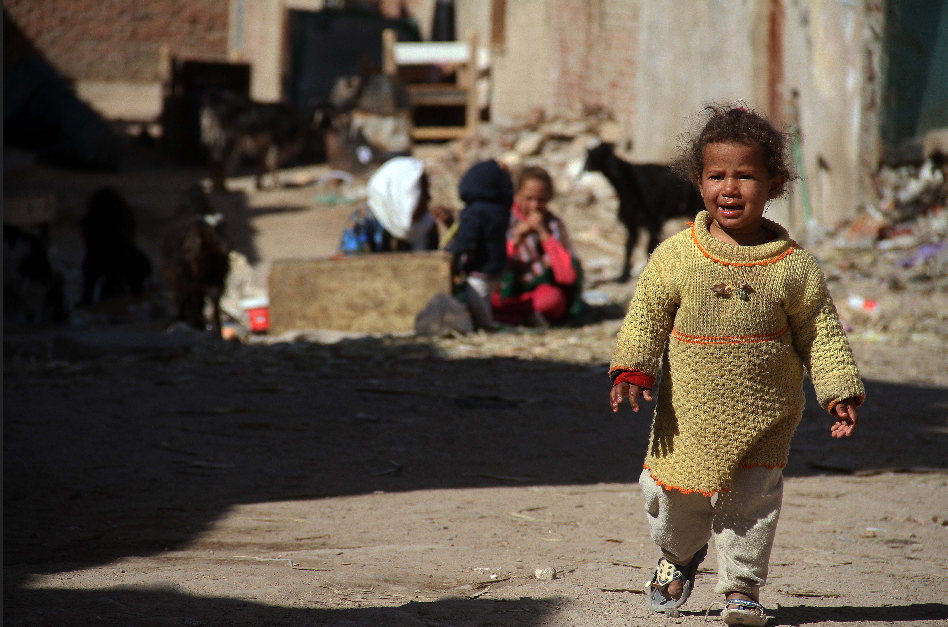Twenty six percent of Egypt’s population lives in poverty, while forty nine percent of Upper Egypt cannot provide the basic needs of food, said Egypt’s Central Agency for Public Mobilization and Statistics.
Egypt’s unemployment rate has reached 13.2 percent and that number almost doubles in women totaling at 24.2 percent, said the agency.
Egypt, the fifteenth most densely populated country in the world, has been experiencing a rise in poverty and food insecurity for past three years, according to reports released by the United Nations food agency and its partners.
“This increase in food insecurity, malnutrition and poverty rates has not happened overnight, during this year or even during the past year… People’s inability to have adequate and nutritious food is largely attributed to rising poverty rates and a succession of crises from 2005 – including the avian influenza epidemic in 2006, the food, fuel and financial crises of 2007–09 and a challenging macroeconomic context in recent years,” said the UN World Food Programme (WFP) Egypt Representative and Country Director GianPietro Bordignon.
According to the WFP and the Egyptian Central Agency for Public Mobilization and Statistics (CAPMAS), it is estimated that 17 percent of Egyptians experienced food insecurity in 2011 compared to 14 percent in 2009.
The report also reveals that the poorest families often spend half of their households on food and buy less expensive, often less nutritious, food to compensate, while, twice as many people have moved into poverty than have moved out.
Malnutrition in Egypt is up, with 31 percent of children under five years of age stunted as opposed to 23 percent in 2005; a number that the UN World Health Organization (WHO) regards as “high range.”
“Stunting, reflecting chronic malnutrition is irreversible and stops children reaching their full physical and mental potential,” WFP stated in a news release. “In nine governorates across all regions in 2011, just over half of children under five were estimated to suffer from anaemia, classified as a ‘severe public health problem’ by the WHO.”
Food subsidies in Egypt, “are not designed to resolve all poverty-related challenges,” according to a paper released by WPF and the International Food Policy Research Institute (IFPRI).
According to ‘Tackling Egypt’s Rising Food Insecurity in Times of Transition,’ almost 70 percent of Egypt’s population receives food subsidies in the form of a ration card system; however, 19 percent of Egypt’s most vulnerable are excluded.






Comments (18)
[…] between one-quarter and one-half of the population lives in poverty (26 percent according to official estimates[5]), and youth unemployment increased from 23.7 percent in 2013 to 29 percent in 2014, [6]according […]
[…] between one-quarter and one-half of the population lives in poverty (26 percent according to official estimates[5]), and youth unemployment increased from 23.7 percent in 2013 to 29 percent in 2014, [6]according […]